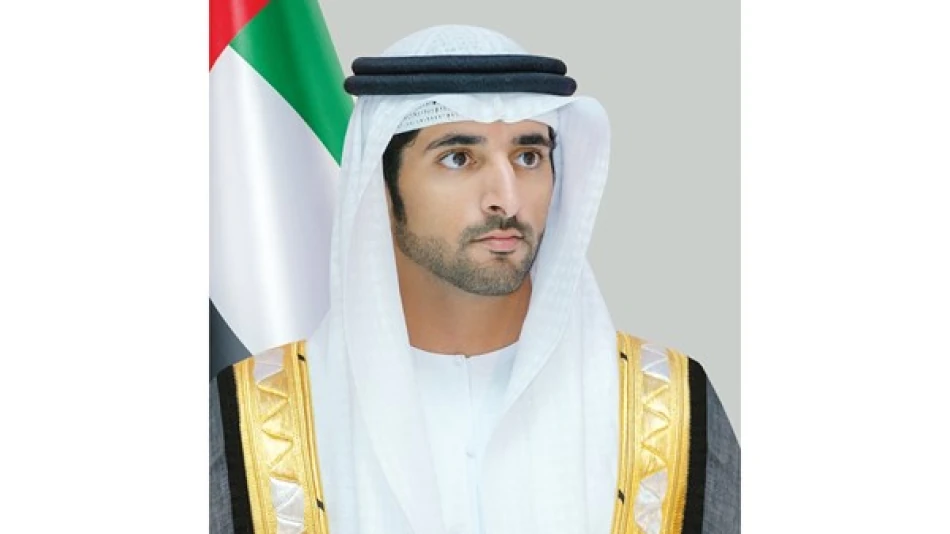
Dubai's Crown Prince Hamdan Visits Civil Defense Headquarters, Reviewing Emergency Preparedness
Dubai Crown Prince Unveils AI-Powered Civil Defense Strategy to Lead Global Safety Standards
Dubai is positioning itself to become the world's premier civil defense hub through an ambitious integration of artificial intelligence, robotics, and advanced technologies. Crown Prince Sheikh Hamdan bin Mohammed bin Rashid Al Maktoum announced the strategic initiative during a high-level visit to Dubai's Civil Defense General Command headquarters, signaling the emirate's commitment to proactive emergency response systems that could set new global benchmarks.
Strategic Vision for Global Leadership
The Crown Prince outlined Dubai's comprehensive approach to transforming its civil defense capabilities, emphasizing that the emirate aims to achieve "the highest international performance standards" in protecting lives and property. This vision extends beyond traditional emergency response, positioning Dubai as a global leader in safety services through technological innovation.
"We have tasked Dubai's Executive Council with following up on the practical steps to achieve this strategic goal," Sheikh Hamdan stated on social media platform X, underscoring the government's commitment to rapid implementation.
Technology-First Approach to Emergency Response
AI and Robotics Integration
The initiative prioritizes the accelerated adoption of artificial intelligence systems, robotics, and cutting-edge technologies to build what officials describe as a "proactive and sustainable civil defense system." This technological leap represents a significant departure from reactive emergency response models toward predictive and preventive safety measures.
The integration of AI in civil defense operations could enable real-time threat assessment, automated emergency response protocols, and enhanced coordination between different safety agencies. Robotics deployment may include fire-fighting robots, search and rescue automation, and hazardous material handling systems that reduce human risk exposure.
Regional and Global Context
Dubai's civil defense modernization aligns with the UAE's broader digital transformation strategy and smart city initiatives. The move mirrors similar technological adoptions in Singapore's Smart Nation program and aspects of China's smart city developments, though Dubai's focus on civil defense leadership represents a more specialized approach.
Unlike other regional competitors, Dubai's strategy emphasizes global partnerships and knowledge sharing in security and safety sectors, potentially creating new revenue streams through technology export and consulting services.
Economic and Strategic Implications
This initiative could strengthen Dubai's position as a global business hub by enhancing its safety infrastructure and emergency preparedness capabilities. For international investors and multinational corporations, advanced civil defense systems represent reduced operational risks and improved business continuity prospects.
The technology-driven approach may also attract global safety technology companies to establish regional headquarters in Dubai, further diversifying the emirate's economy beyond traditional sectors like tourism and trade.
Implementation Timeline and Challenges
While specific timelines weren't disclosed, the Crown Prince's directive for "accelerated adoption" suggests rapid deployment phases are planned. The success of this initiative will likely depend on effective integration between existing emergency response protocols and new AI-powered systems, requiring substantial training and infrastructure upgrades.
The emphasis on building a "proactive" system indicates Dubai aims to move beyond current reactive emergency response models, potentially incorporating predictive analytics for disaster prevention and automated threat detection systems that could prevent emergencies before they occur.
Most Viewed News

 Layla Al Mansoori
Layla Al Mansoori






